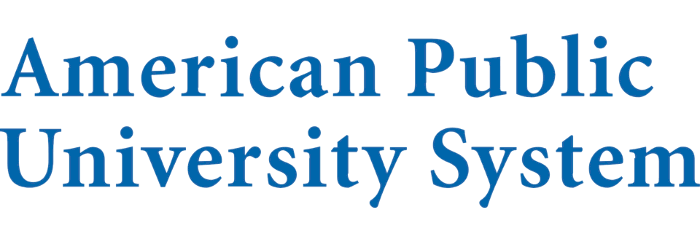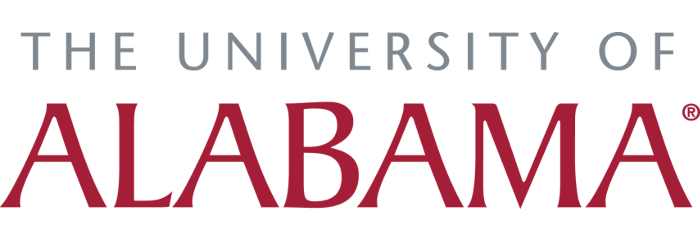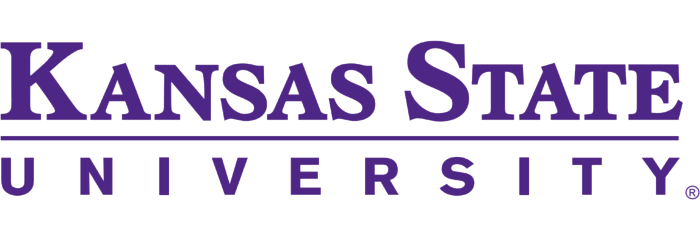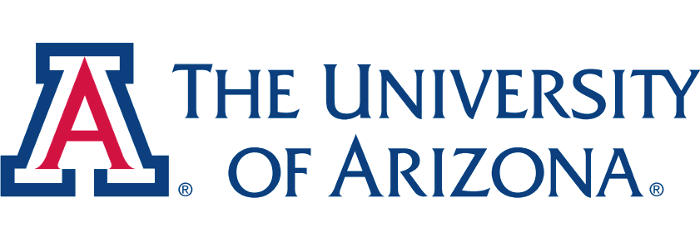
The cheapest online nutrition degree offers flexibility to study the science of nutrition while balancing other commitments. Courses cover diet planning, food science, and community health, preparing you for careers in dietetics, health education, or wellness coaching. Many of these bachelor's programs include hands-on components to ensure evidence-based learning.
Key Takeaways:
- Arkansas State University is the #1 most affordable nutrition bachelor's degree online, with annual tuition at $7,260.
- The University of Alabama offers an online Bachelor of Science in Food and Nutrition with a median graduate earnings of $52,227.
- Cedar Crest College has the lowest student-to-faculty ratio of 9:1.
We independently review tuition costs to ensure only the most affordable online degrees are featured. All listed schools are institutionally accredited and provide fully online programs with transparent pricing. Visit our methodology to learn more.
2025 Most Affordable Online Nutrition Degrees
| Rank | School | Location | Annual Tuition |
|---|---|---|---|
| Arkansas State University | Jonesboro (AR) | $7,260 | |
| Weber State University | Ogden (UT) | $8,970 | |
| Bowling Green State University - Main Campus | Bowling Green (OH) | $10,109 | |
| American Public University System | Charles Town (WV) | $10,500 | |
| Purdue Global | Indianapolis (IN) | $11,130 | |
| University of Alabama | Tuscaloosa (AL) | $11,550 | |
| Kansas State University | Manhattan (KS) | $12,143 | |
| Troy University | Troy (AL) | $12,720 | |
| Cedar Crest College | Allentown (PA) | $14,250 | |
| University of Arizona | Tucson (AZ) (and 1 other) | $15,750 | |
| Arizona State University, Online | Tempe (AZ) (and 4 others) | $17,220 | |
| University of Alaska Anchorage | Anchorage (AK) | $25,440 | |
| Appalachian State University | Boone (NC) | $27,344 |
ADVERTISEMENT
Online Nutrition Bachelor's Degrees You May Be Interested In
Annual Tuition: $32,193
3 Programs ( view all )
Overview of Online Nutrition Bachelor's Degrees
A bachelor's degree program in nutrition is designed to give you the knowledge and tools you need to help your future clients achieve optimum health. Through the courses on food science, physiology, health, and more, you'll learn how to evaluate clients' nutritional status, assess their food-related behaviors, and recommend appropriate changes.
An online nutrition degree typically requires the completion of 120 credit hours. Most full-time students earn their degree in four to five years, but part-time students may need five or six years. By the time you graduate, you'll have developed both technical skills, such as dietary analysis and nutrition planning, and soft skills like effective communication, instruction, research, and empathy.
Throughout the program, you'll be given many assignments that provide real-world experience in a simulated environment. You can expect to engage in projects like meal planning for specific medical conditions and running community nutrition campaigns. The goal is to prepare you for a diverse range of opportunities in the field.
Common Courses
Nutrition bachelor's degree programs include a wide array of courses on the human body and nutrition. Some courses, such as food science or chemistry, may include hands-on lab work. Many programs include an internship or some type of work in the nutrition field, as well as a capstone project.
Below are some of the courses often included in an online nutrition program:
Nutritional Science
Typically one of the earlier courses in a nutrition program, this class provides an understanding of the fundamental principles of nutrition, including the role of nutrients in the body. Students will learn about metabolism, digestion, and how different nutrients affect overall health.
Dietetics and Clinical Nutrition
Focusing on therapeutic diets, students in this course learn to create and manage diet plans for specific medical conditions, such as diabetes or heart disease.
Community Nutrition
This course explores the role of nutrition in public health. Students will gain real-world experience in developing community-based interventions by designing nutritional programs that promote health within various populations.
Food Safety and Sanitation
Students will learn about foodborne illnesses and the importance of proper food handling, safety regulations, and sanitation practices within the food industry.
Behavioral Nutrition
By emphasizing the psychological aspects of eating, this course helps students understand how behavior influences nutritional choices and how to encourage healthy eating habits.
Sports Nutrition
This course covers the specific nutritional needs of athletes and those engaging in regular physical activity. Coursework may include developing individualized nutrition plans to optimize performance.
You'll gain additional information about the nutrition field by reading Is a Nutrition Degree Right for Me? and What Can You Do With a Nutrition Degree?
Funding an Online Nutrition Degree
Earning your bachelor's degree in nutrition is a significant investment that requires careful planning and smart decision-making. The following five suggestions may allow you to reduce the cost of your undergraduate education and save money while you're in college:
- One way to minimize costs is to opt for an online degree like those on the list of the most affordable nutrition degrees above. Tuition is by far the most expensive part of going to college, but many schools charge lower tuition rates if you earn your degree completely online. Also, by studying remotely, you cut out other expenses like room and board and transportation to and from school.
- When looking at program options, consider attending a public university. Current data published by the National Center for Education Statistics (NCES) show that the for bachelor's degrees at public schools was about one-fourth of what private schools charge — $9,750 versus $35,248. Here again, a public school can help you significantly reduce tuition fees.
- One of the biggest advantages of attending school online is that it lets you live anywhere you choose, including a state with a lower cost of living. Relocating to an affordable city or town could help you save on rent, food, and other living expenses.
- Consider fulfilling your general education requirements at an affordable community college. In the first two years of a bachelor's program, you'll need to take about 20 basic courses in subjects like English, calculus, and data literacy. You could complete these courses at any online community college, and the NCES notes they average $3,598 a year in tuition.
- A part- or full-time job may allow you to earn extra income that you can put toward your degree. Working while you're in school has its benefits and drawbacks, but it may help you avoid or at least minimize student loan debt.
Financial Aid
For many students, financial aid is one of the primary sources for funding a degree. As long as you're enrolled in an accredited program, you can apply for financial assistance by submitting the Free Application for Federal Student Aid (FAFSA). If you qualify for aid, you'll receive a financial aid offer from your school. This letter will explain the types and amounts of aid you can receive.
Out of all the types of financial aid available, grants and scholarships from the government or your school are preferred because they don't have to be paid back. However, depending on your financial need, you may be offered a federal or private student loan. Keep in mind that loans have to be repaid with interest, so you may want to use a student loan repayment calculator to determine the total cost of the loan before accepting it.
If you do some research, you may also discover that you're eligible for several privately funded scholarships. These can be awarded based on financial need, academic excellence, or family heritage. There may also be scholarships available for students majoring in nutrition or health.
What Can You Do With an Online Nutrition Degree?
After earning an online nutrition bachelor's degree, you may want to enter the workforce or continue to enhance your credentials through certification or graduate studies.
One of the most common occupations that graduates with this degree pursue is a nutritionist. According to the Bureau of Labor Statistics (BLS), nutritionists typically find employment in healthcare facilities, such as hospitals, large private practices, and nursing homes. They are responsible for assessing their clients'’ nutritional needs and providing counseling and education. The median annual wage for nutritionists is , and demand for professionals is expected to grow by 7% over the next decade, which is much faster than average.
The knowledge and skills you acquire while earning a bachelor's in nutrition qualify you for other jobs as well. For example, you might become a health education specialist or community health worker. In these roles, you'll work with entire communities of people, developing programs to help them improve their health through diet. The median annual wage for these professionals is , and 7% job growth is projected through 2032. You could also become a food scientist — earning a median annual salary of — who helps develop food products.
Further Education, Certification, and Licensure
Depending on the state where you live, you may need additional education, certification, or a state-issued license to work as a nutritionist or dietitian. State requirements vary significantly, so be sure to check with your state's licensing board to determine whether a nutrition bachelor's degree is adequate or if a master's degree will be required. Although affordable online nutrition master's degree programs are available, it will still add a substantial amount to the cost of your education.
Some states require certification, but even if it's not required by your state, you may want to consider earning a professional credential since many employers prefer to hire job candidates who've obtained certification. Two of the most popular credentials are the Registered Dietitian (RD)/Registered Dietitian Nutritionist (RDN) and the Certified Nutrition Specialist (CNS). In 2024, you will need a master's degree to qualify for these certifications.
Another benefit of earning a master's in nutrition is that you'll be able to choose an area of specialization as you study. You may decide to specialize in working with people suffering from specific diseases, including diabetes, digestive disorders, or cancer, or with particular groups of people, such as athletes.
If original research in the field of diet and nutrition is your passion, you may want to consider earning a doctorate in nutrition. This will enable you to work in research labs and universities.
Thinking about earning a graduate degree? Explore our lists of the best nutrition master's degrees and the most affordable nutrition master's degrees.
FAQs About Online Nutrition Degrees
How Do I Choose a Bachelor's in Nutrition?
You'll undoubtedly want to explore several key factors when you're evaluating your options for earning an online nutrition bachelor's degree. In addition to reviewing the curriculum to ensure it will help you meet your career goals, you'll want to look at tuition and other fees, availability of financial aid, online format, and support services offered by the school.
When it comes to nutrition degrees, accreditation is also extremely important. The school you select should have institutional accreditation, and the program should be accredited by the Accreditation Council for Education in Nutrition and Dietetics (ACEND). You may need to hold a degree from an ACEND-accredited program to obtain certification or licensure.
What Are the Admission Requirements for Nutrition Degrees?
Admission requirements for online nutrition programs are fairly similar across schools. Some of the common requirements include a high school diploma or the equivalent, a high school GPA of at least 2.5, and high scores on standardized tests like the SAT or ACT.
When submitting your online application, you may be asked to provide high school transcripts, a personal essay, a list of extracurricular activities and achievements, and one or more letters of recommendation.
You'll want to start applying to colleges about 6-12 months before you plan on enrolling. For most colleges on a regular admissions schedule, applications are due sometime in the fall or winter of the year before the program starts. However, if you're planning on attending an online-only school, they often accept applications all year and offer start dates scattered throughout the year.
Do You Need a Bachelor Degree for a Career as a Nutritionist?
The career requirements for becoming a nutritionist vary widely depending on the state where you live. However, many states do require a bachelor's degree in nutrition or something similar, and some require a master's.
Are Nutrition Degrees Worth the Cost?
Determining whether nutrition degrees are worth the money requires evaluating several factors. According to the BLS, dietitians and nutritionists have a median annual wage of $69,680, with job growth projected to be 7% through the next decade, which is faster than the average for all occupations. This growth is driven by a growing interest in the role of food in health and wellness, increasing demand for dietitians and nutritionists in healthcare facilities, foodservice management, and private practice.
Considering the long-term career prospects and salary potential, investing in a nutrition degree can lead to a stable and rewarding career. According to , nutritionists rate their job as 3.3 out of 5 stars, placing them in the top 45% of careers.
Looking at the cost of obtaining a nutrition degree, our list of online nutrition programs highlights some budget-friendly options. For instance, Weber State University offers an online nutrition degree with an annual tuition of $8,970, making it the most affordable option. On the higher end, Arizona State University offers a program with an annual tuition of $17,220. When comparing these tuition rates with the potential earnings and career growth in the field, a nutrition degree from an affordable online program appears to be a worthwhile investment. By choosing a more affordable program, students can minimize debt and maximize their return on investment, ensuring that the benefits of their education outweigh the costs.
Student Reviews of Online Nutrition Programs
Everything was done remotely including group projects. Attending school at Purdue Global online was a great way to interweave my education with my other commitments. The instructors were very thorough and fair. I’m very happy with the school and I can’t wait to graduate!
Review Date: 1/8/2024
Would Recommend: Yes
Helpful for Career: Yes
Purdue Global has been an amazing experience. I was able to balance life work and school and earn my Bachelor's degree with ease. The support of the professors and staff were comforting and always there to answer questions. I highly recommend attending for your education needs.
Review Date: 4/21/2023
Would Recommend: Yes
Helpful for Career: No
After much research I made the decision to apply at Purdue University Global for my personal needs. The degree in nutrition I was looking for plus the total online environment so that I could make it work around my busy life (family, kids, work). I loved the student services, library, writing center, tutoring, etc, all of that was more than I had hoped for. I personally had a great advisor, with fantastic communication level and always working to help me get through in the most cost effective way.... Read More
Review Date: 5/31/2022
Would Recommend: Yes
Helpful for Career: No
After not being in a classroom after almost thirty years I was a little apprehensive about returning. I was pleasantly surprised how great the instructors were. The materials being online also made things much easier. I did enjoy using the bookshelf app for the course books. My last few classes used a different service to deliver online materials and a lot of those PDF's are not text but pictures. I am one that has to read and listen to my material. This was not possible as some of the materials... Read More
Review Date: 11/11/2021
Would Recommend: Yes
Helpful for Career: No
I attended ASU beginning in February of 2011 and was able to graduate by June 2012. Everything went very smooth for me. Alot of writing which is what you are to expect. So if you do not like to write, do not like to follow a format, and cannot self-motivate, no online school will be for you. I have encouraged over 35 other nurses to continue with their eduction with ASU. Not one of them complained about the school. There were a few who complained about a couple of professors but what do you expect?... Read More
Review Date: 11/19/2013
Would Recommend: Yes
Helpful for Career: Yes
This college was very affordable and the teachers were very passionate about what they were teaching. The class sizes are also pretty small compared to other colleges, so you get more one on one time with your professors. It is in a small town so you can walk or ride a bike pretty much anywhere. The weather is a bit extreme, but other than that, it is a very good school to go to.
Review Date: 8/27/2019
Would Recommend: Yes
Helpful for Career: Yes
Lehman College is a great campus. It is the only CUNY senior college in the Bronx with a lot of opportunities that students can take advantage of. By my experience, Lehman College is the best school in the Bronx. Many students who enrolled in Lehman were coming from other non-CUNY institutions such as New York University and SUNY Stony Brook University. There are many job opportunities on and off campus that students can get, especially when the jobs relate to their field. If any student is interested... Read More
Review Date: 6/11/2019
Would Recommend: Yes
Helpful for Career: Yes
Mekdes Zemedhun, BS, icF Certified Health and Wellness Coach,
Servsafe Cert8fied Food Safety Manager
BUSINESS OWNER
"I enrolled into Georgia State University Prenursing program in 2002, and followed by Dietetic and Nutrition program and graduted in 2007. MY Bachelor in Dietetics and Nutrition from GSU was on campus and online. Some people compare it to master level training because if the intensity of the program. The Nutrition program was very challenging program and left me with great lessons about... Read More
Review Date: 5/2/2025
Would Recommend: Yes
Helpful for Career: Yes
Morgan state university is a great place to get your education. People are very friendly and the professors are mindful that they care a lot about their students. The events are very enjoyable to get involved in, you do not want to miss out on the fun. the food is amazing to eat.
Review Date: 12/16/2022
Would Recommend: No
Helpful for Career: No
I had a wonderful experience attending ECU as an undergraduate Nutrition and Dietetics students. The professors are helpful and encourage students to get involved in departmental research, community service, and paid nutrition-related work experience. They want to see their students succeed.
Review Date: 3/31/2019
Would Recommend: Yes
Helpful for Career: Yes
I love Virginia Tech! Such an amazing program, university, and incredible opportunity to grow in academics and character! Collectively, my experiences have influenced the trajectory of my future as a community-based healthcare professional and leader. As a graduate of the Virginia Tech College of Agriculture and Life Sciences as a Human, Nutrition, Foods, and Exercise major, my minors in medicine, societal ethics, and neuroscience, I am grateful for the gained appreciation for organic agricultural... Read More
Review Date: 6/30/2019
Would Recommend: Yes
Helpful for Career: Yes
I had an amazing experience at Abilene Christian University. I have received not only an excellent education and preparation for the future, but lifelong friends and mentors. I often was invited to professors homes where they mentored me in my career endeavors, went on mission trips with my professors and department heads, and worked alongside of many intelligent and qualified peers. I would highly recommend an education from Abilene Christian University because it will not only provide you with... Read More
Review Date: 6/6/2018
Would Recommend: Yes
Helpful for Career: Yes
My experience at college was tumultuous to say the least. It began with me starting out as a veterinary science major. I quickly realized that committing to eight years of school before I even began my education was not what I wanted. See, but that's the great thing about Penn State. Due to the vast size of the school, there are numerous departments and majors to choose from. I ended up staying in the college of agricultural sciences and pursing a degree in food science. This program has been difficult,... Read More
Review Date: 4/18/2018
Would Recommend: Yes
Helpful for Career: No
I attended Purdue University because it was very close to home and many people in my family attended in the past. My degree was very science-based, so my courses in Biology, Microbiology, Chemistry, Organic Chemistry, and Biochemistry were all in very big lecture halls. Although these were big classrooms, the professors still tried their best to answer individual student questions. In addition, these big classes came with a ton of extra resources including multiple teaching assistants, recitations... Read More
Review Date: 9/29/2019
Would Recommend: Yes
Helpful for Career: No
The dietetics program at BYU taught me effective ways of learning, along with empathetic ways to care for patients. As I am pursuing my graduate degree in dietetics, I am excited to gain a broader skill set in order to better help those around me. Food is such an integral part of life, and I love helping others to integrate greater nutrition into their diets.
Review Date: 2/6/2017
Would Recommend: Yes
Helpful for Career: Yes
I love the support of the staff as well as the competitiveness of the education I will be receiving. I only wish that the university provided more financial aid for the program that I am in.
Review Date: 5/26/2015
Would Recommend: Yes
Helpful for Career: No
Montclair State University is big, but it feels small. Studying Nutrition with a concentration in Dietetics, becoming the President of a student organization, and Studying Abroad (twice!), MSU created an inclusive, welcoming environment where I felt at home. There are so many resources if you just reach out and find them!
Review Date: 4/12/2017
Would Recommend: Yes
Helpful for Career: Yes
I really enjoyed UK! Many people say it is a "bigger" school and you can definitely feel lost in it, but there are so many ways to get involved on campus and find your sense of community within the larger campus. There are tons of resources available to undergraduate students and it is a great place to learn about yourself.
Review Date: 8/23/2019
Would Recommend: Yes
Helpful for Career: No
URI is a great place to get a degree. I was a commuter, so I can't speak to campus life but the dietetics program there is a good one. The curriculum is very heavily science based and could benefit from a little more hands on experience work, but you do get a good science knowledge base to work off of. The faculty is wonderful, attentive and concerned about helping students. They do a great job of preparing students for applying to internships (for those who choose that route).
Review Date: 7/11/2016
Would Recommend: Yes
Helpful for Career: No
Florida State University provides so many opportunities to get involved with your career field and make connections outside the classroom, as well as having experienced and knowledgeable professors, especially in my major program. I was able to learn so much and find my dream career to work towards, and got involved in several organizations at school and in the community to make connections and meet people who helped prepare me for my future. The Career Center at FSU is also very helpful, and provided... Read More
Review Date: 6/29/2016
Would Recommend: Yes
Helpful for Career: Yes













